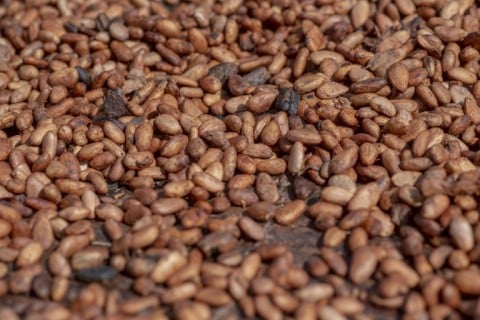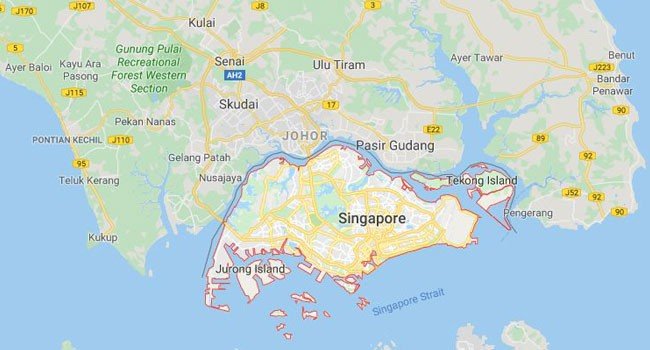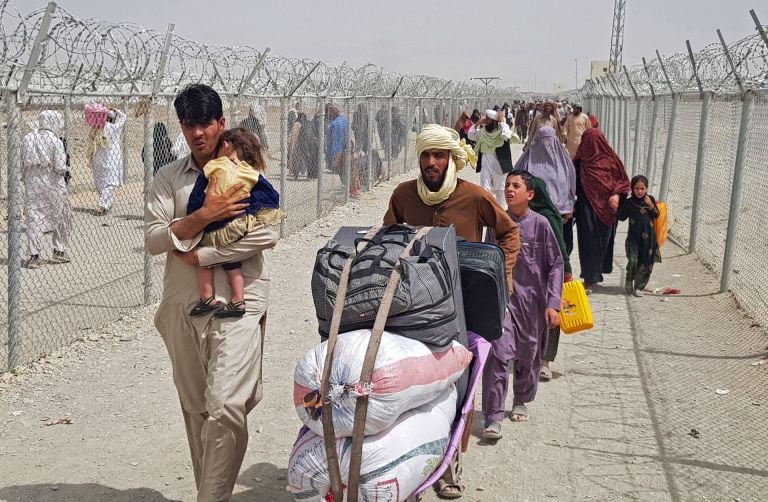Illegal mining poses a threat to Ghana’s cocoa sector
According to industry officials, farmers, and environmentalists, Ghana, the world’s second-largest cocoa producer, is experiencing increased threats to its bean supply from illicit miners and smugglers.
At a time when Ghana is experiencing one of the worst economic crises in its history, with inflation hitting 26.4% in November, illicit mining, known locally as “galamsey,” is posing a huge difficulty for cocoa farming, which, together with gold and oil, is a foundation of the national economy.
“Over the past five years, we have seen serious destruction on cocoa farms due to the activities of illegal miners,” Michael Kwarteng, director of anti-illegal mining activities at the Ghana Cocoa Board (COCOBOD), told AFP.
“This has reached alarming proportions,” he said emphatically.
In response to the economic crisis, an increasing number of farmers are selling their land to illegal miners, such as Rita Abena Koranteng, 45, a cocoa farmer in Suhum, Ghana’s eastern area, who has sold two of her plots to her uncle so that he can mine the subsoil.
“Every month, he pays me 500 dollars and I’m happy, because I could never have earned so much money from my cocoa-growing business” , she goes on to say.
“I know that some of my fellow cocoa farmers in the western region and other places have switched to planting rubber trees because they don’t earn enough from cocoa,” she said.
The government, which purchases the entirety of the country’s output before selling it to private firms, has agreed to a 63% rise in the price paid to producers this year, but this is insufficient to deter them from selling their property for undeclared mining. It currently pays $1,822 (€1,670) per tonne of cocoa purchased from growers.
“So far, land lost to illegal mining accounts for 2% of Ghana’s total cocoa cultivation area.” “We can no longer allow this to continue,” Michael Kwarteng is concerned.
Ghana is expected to harvest 1 million tons of cocoa between 2020 and 2021, according to COCOBOD. However, due to the influence of illicit activities, this figure has reduced to 750,000 tonnes for the 2022-2023 harvest, and its projection for 2023-2024 is between 650,000 and 700,000 tonnes.
– A ticking time bomb
Mining activities, in addition to destroying agricultural land, contribute to the degradation of rivers and water tables by using chemicals for extraction.
Obed Owusu-Addai, Campaigner at EcoCare Ghana, a farm welfare organization, argues that the government still needs to increase farmer prices and living standards.
“We are sitting on a time bomb as a country,” he says.
“If this problem is not solved immediately, we will end up losing most of our land to illegal mining,” he said.
COCOBOD’s Deputy Director of Communications, Benjamin Tei Larweh, says the organization has begun awarding monetary awards to those who report illicit mining on cocoa land, as well as bean smuggling, which is another issue for the industry.
“In 2022, Ghana lost around 150,000 metric tonnes of cocoa beans to smuggling with our neighbours, which represents a colossal revenue of 600 million dollars that has gone down the drain” , he goes on to say.
Another concern for the sector is climate change, which has a significant impact on cocoa production.
Ghana’s golden bean is grown in six key regions: East, Ashanti, Brong Ahafo, Central, Volta, and West.
However, production has shifted westward due to unpredictable rainfall and deteriorating soil fertility. Ghana’s western region is now the country’s leading cocoa producer, accounting for 43% of overall production.



